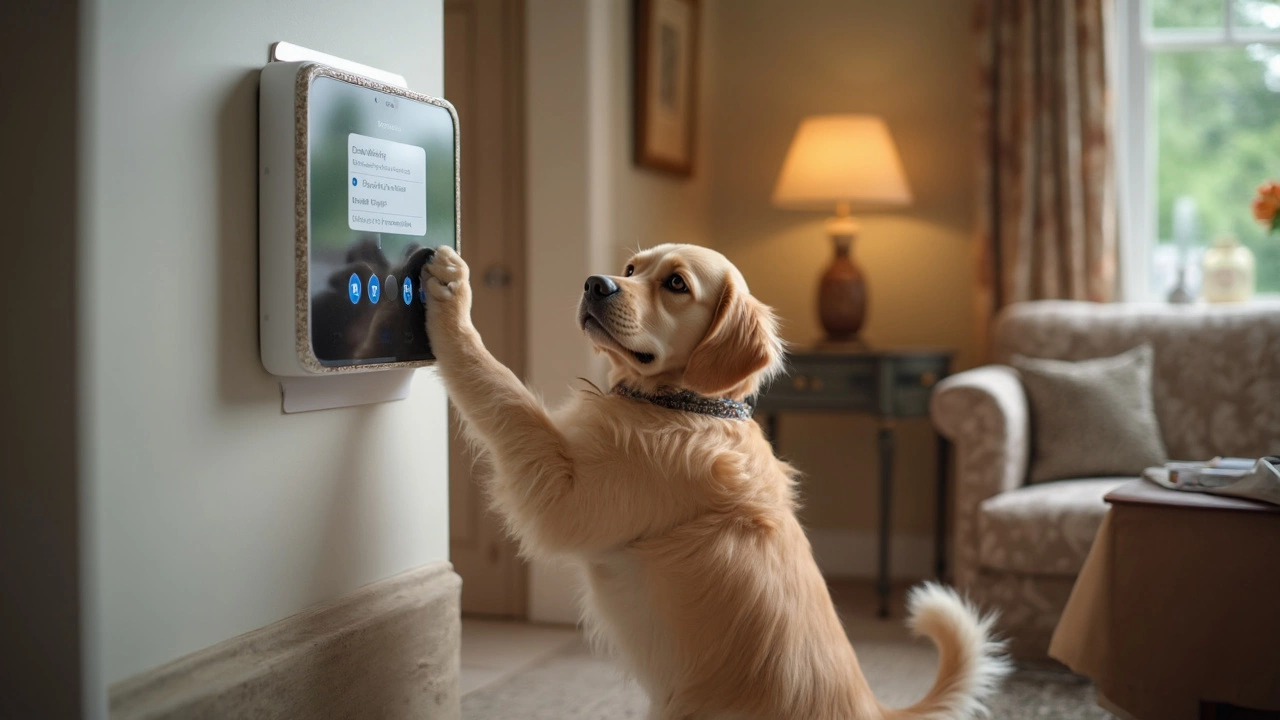Thinking about adding a house alarm? You’re not alone. A good alarm system is the quickest way to make burglars think twice and give you peace of mind. In the UK, there are a few key things that separate a decent setup from a great one.
First up, look for sensors that cover doors, windows, and motion. Modern sensors can tell the difference between a pet and a person, cutting down on false alerts. If you have pets, make sure the system offers a pet‑immune mode.
Second, check the communication method. Most alarms talk to the monitoring centre via cellular, GSM, or internet. Cellular is usually more reliable because it works even if the power goes out or the Wi‑Fi drops.
Finally, think about how you’ll receive alerts. Push notifications to your phone are instant, but a loud siren inside the house still scares off intruders. Many UK providers also offer a backup battery that keeps the siren alive during a blackout.
Not every house needs the same level of protection. If you live in a flat, a basic door‑window sensor set with a small siren might be enough. For larger properties, add motion detectors in hallways, garden lights that turn on when motion is detected, and glass‑break sensors for vulnerable windows.
Budget matters, too. DIY kits are cheap and let you install everything yourself, but you miss out on professional monitoring. Professional monitoring costs a little extra each month but gives you 24/7 response from a certified centre, which can call the police if needed.
Ask yourself these quick questions before you decide:
Answering honestly will point you toward the right balance of cost and coverage.
Once you’ve picked a system, the installation is usually straightforward. Most modern kits come with clear step‑by‑step guides, and the apps walk you through testing each sensor. If you’re unsure about wiring or drilling into walls, it’s worth hiring a certified installer – they’ll also make sure the system complies with UK regulations.
Remember, a house alarm is only as good as its maintenance. Test your sensors monthly, replace batteries when the app warns you, and keep the firmware updated. A well‑maintained alarm stays reliable and keeps your insurance premiums low.
Bottom line: a house alarm doesn’t have to be complicated. Pick the right sensors, choose a reliable communication channel, decide if you need professional monitoring, and keep the system up to date. With those steps, you’ll have a solid defence that works for you and your family.

Wondering if your house alarm still protects you when Wi-Fi drops? This article breaks down exactly how different alarm systems handle internet outages, so you know what's really keeping your home secure. You'll pick up key tips to make your alarm system more reliable, even if you lose internet. Get clear answers on backup plans, common myths, and smart ways to boost peace of mind. If security matters to you, these details matter too.

Setting a house alarm with pets can be tricky, as traditional systems often misinterpret your furry friend's movements as potential threats. Learn how to navigate the world of pet-friendly alarms, ensuring both home security and pet comfort. We'll explore motion sensor tips, setting up smart notifications, and choosing the right system for a pet-friendly environment. Protect your home while keeping your pets safe and stress-free.